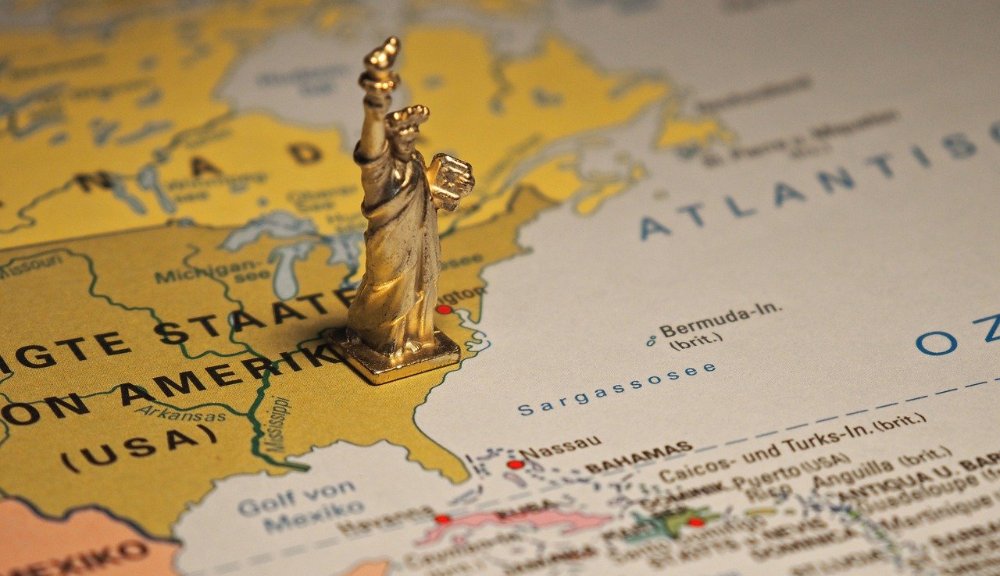Living in Italy, thousands of miles from the America we spent most of our lives in, has been enormously angst-filled as we have watched events leading up to the national election. We are no different than millions of people in the U.S. itself, biting nails to the quick or slurping down the adult beverages into the late-night hours. I have found myself sleeping in fits and starts, often awakened by nightmarish scenes that could have been penned by Margaret Atwood or George Orwell.
Our fear and trepidation are eased to some degree because we are not fretting alone. Our Italian friends understand, at least in the broad strokes, the global impact of this election cycle. They might not know the exact monetary amounts, but they know that the economic ties between Italy and the U.S.A. are numerous.
First, there are the blood relations. More than 15 million Americans are of Italian descent, comprising more than 5% of the population. Many people keep in touch with relatives on both sides of the Atlantic. Many younger Italian men and women continue to view the U.S. as the land of opportunity, with gold dust laying around, as has been its reputation in the world for centuries. Between allies in wars and multiple waves of immigration, connections between the two countries have been long and close.
Italy is one of the major trading partners with the U.S. It sends $70 billion of products to the U.S. annually, constituting almost a third of its annual Gross National Product. Trade with the U.S. keeps Italy’s factories, furniture-making, auto manufacturing, and vinicultural industries filled with workers feeding their families. The wars in Ukraine and Gaza can have great impact with their relative proximity. Already, one of the largest groups of foreigners living in Italy has been Ukrainian women and children.
The actions of whoever occupies the White House and the chambers of Congress are of no small consequence to this part of the world. If high tariffs limit the flow of Italian products, that will have a profound impact on jobs here, in an economy that is already struggling with an unemployment rate twice that of the U.S. For younger Italians seeking jobs, the unemployment rate is in the double digits, and many often must go to Germany to find living-wage jobs. A sobering statistic is that the median household income in Italy is around $36,000/year, less than half of that in the U.S. And that is often with more than one person working in a family.
If the U.S. were to pull out of NATO, that would further weaken an alliance among the 27 member nations of the European Union, potentially leading to a break-up. The EU has been a powerful political, economic, and cultural body for more than 60 years, weaving together the assets and attributes of multiple economies. One need only look at Brexit in the UK to see the disaster resulting from dissolution.
Our Italian neighbors are justifiably concerned. Policies and politics in the U.S. ripple throughout the world. Italian memories are long and painful. They know full well the horrors of life under an autocratic system of government. They know the impact of war, since major parts of their cities were bombed into dust before the country signed an armistice and switched sides, a decision that resulted in even more death and destruction.
To calm my own nervous condition, I have been heartened by reading the illuminating online essays by Boston College historian Heather Cox Richardson. She has an upbeat way of putting into historical context current events that seem so random, crazed, and depressing. Her writings revive my faith in the American people, despite my fear that the actual outcome of the national election will likely not be known for weeks, if not months.
My current nightmare scenario is that the next several months will devolve into a continuing chaos of unhinged conspiracies, legal challenges, intimidations of election officials, violence at state and federal institutions, National Guard deployments, and even (God forbid) assassinations.
Unfortunately, I can see few pathways to a peaceful transition. I truly wish I could feel hopeful rather than helpless. Despite the inevitable disturbing events to come, we will be watching closely and anxiously — along with you readers.

Your fears are not irrational and widely shared.
If there’s anything somewhat heartening… (and I say only somewhat)… is that Trump voters feel very much the same.
The depressing realization that thanks to the electoral college, while polls are still open on the West Coast, at 7:30 p.m., it’s as if our votes don’t even matter, the Southeast and the ‘swing’ states are being tabulated with an eye to reaching 270…while our votes haven’t even begun to be counted.
I guess the worries about a peaceful transition are taking a back seat at this point – plenty to worry about, though.
We’re feeling sort of isolated here on the other side of the world. I’ve read that if were up to the Portuguese, 70% of them would have voted for Harris. They don’t get it, and I would have a hard time explaining it myself, but it’s time to start thinking about how Europe can keep off of this path.